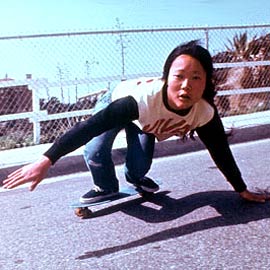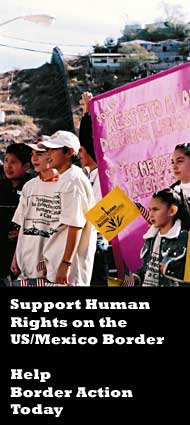Series in Critical Security 1
This is the first entry in a series that I plan to post as I am reading stuff on governmentality, imperialism, ethnic-military relations, and racial formations. I am reading these texts with one eye on "border studies" and the U.S./Mexico border area and the other eye on traditional administrative thought and security discourse. I have named this series, "critical security" to specifically reflect the myriad forms and definitions of security as well as to highlight the notion that some forms of security produce insecurity for others. For example, National Security measures that focus on reducing undocumented entry into the U.S. produce a migration situation in which undocumented crossers are confronted with great uncertainty, vulnerability, and hostile environemntal conditions that threaten thier own personal security. Yet, one can not assume that "reducing undocumented entry" is a legitimate National Security issue. Bringing up such positions highlights the importance of discourse analysis in the examination of security. This basically means that the more immigration is treated as a national security concern the more national security strategies will be deployed to address its contradictions.
To begin, some basic questions must be presented to understand the scope of a critical security analysis of immigration and borders.
- Ontological - What is to be governed?
- Ascetics - How is it to be governed?
- Deontological - Who is to be governed?
- Teleological - Why is it to be governed?
- Operative - Who is to govern?
These basic questions transform the practice of the nation-state into a problematic condition that brings the entire system of social relations into question. These questions are concerned with the concepts of authority, knowledge production, and technique.
Identity, Belonging, Priveledges, Rights, Claims, Nationalism, Race, Gender, Sexuality, Desire, Ideology, Movement, Territory, Space, Property, Law, Doctrine, Courts, Police, Armed Guards, Threats of Violence, Provocation of Inter-Ethnic Conflict, Physical Barriers, Empty Deserts, Demarcated Maps, Landmarkers, Road Signs, Road Blocks, Checkpoints, Troop Deployments, Detentions Centers, State Prison Contracts, Federal Prison Contracts, Time, Transnational Law Enforcement Cooperation, La Migra, U.S. Customs Agents, DEA, El Grupo Beta, Los Federales, La Policia, Judges, Lawyers, Notarios Publicos, Coyotes, Narcotraficantes, Employers, Laborers,(Im)Migrants, Families, A Racial Hierachy, Jobs, Wages, Prices, Taxes, Profits, Subsidies, Aggressive Economic Restructuring, Producer Price Index, Global Trade in Commodities, Industrial Monopolies, Access to Cheap Resources, Industrial Corporations, Private Security Firms' Executives, Shareholders, Voters, Electorates, Legislative Representatives, Lobbyists, Investors, Military (Sub-)Contractors, Weapons Manufacturers, Legislative Aids, Campaign Contributions, Ability to Deploy Coercive Force, Masculinity, Anglo-Saxon Decendents, Ethnically White, Protestants, Capitalists, & Racists (people who attach negative characteristics to particular bodies as naturally occuring behavioral outcomes of physical difference).
What would this list look like if mapped out spatially to reflect the inter-related character of different groups and concepts?




